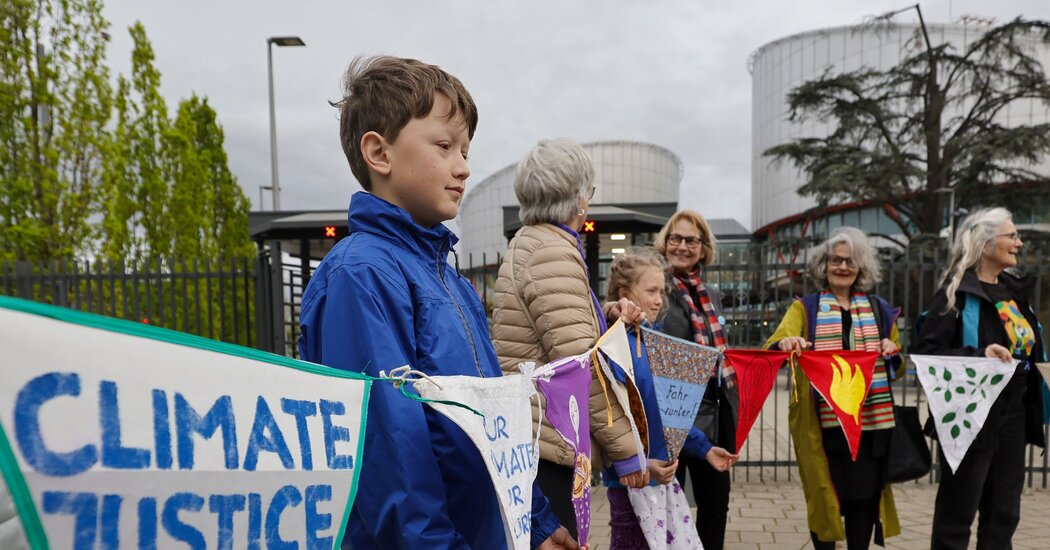Experts said it was the first time an international court determined that governments were legally obligated to meet their climate targets under human rights law.
Europe’s top human rights court said on Tuesday that the Swiss government had violated its citizens’ human rights by not doing enough to stop climate change, a landmark ruling that experts said could bolster activists hoping to use human rights law to hold governments to account.
In the case, which was brought by a group called KlimaSeniorinnen, or Senior Women for Climate Protection, the European Court of Human Rights in Strasbourg, France, said that Switzerland had failed to meet its target in reducing carbon emissions and must act to address that shortcoming.
The women, age 64 and up, said that their health was at risk during heat waves related to global warming. They argued that the Swiss government, by not doing enough to mitigate against global warming, had violated their rights.
It is the latest decision in a broader wave of climate-related lawsuits that aim to push governments to act against global warming, and countries’ domestic courts have handled similar cases. But experts said it was the first instance of an international court determining that governments were legally obligated to meet their climate targets under human rights law.
“It is the first time that an international court has affirmed clearly that a climate crisis is a human rights crisis,” said Joie Chowdhury, a senior lawyer with the Center for International Environmental Law, an international group that voiced its support for KlimaSeniorinnen’s case.
Although the decision is legally binding, experts say that states are ultimately responsible for complying.
